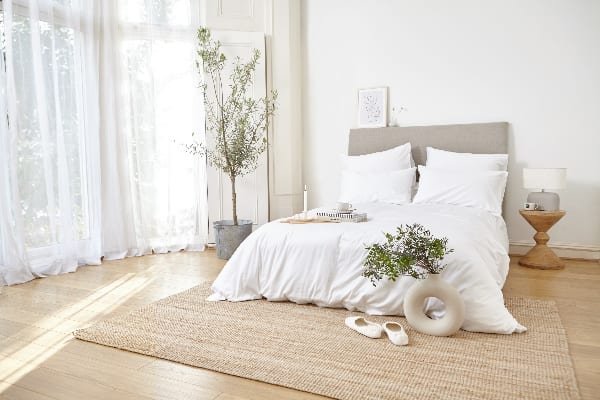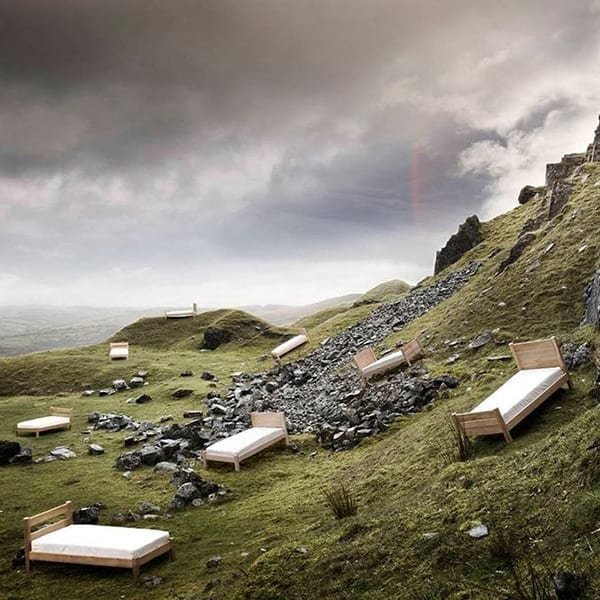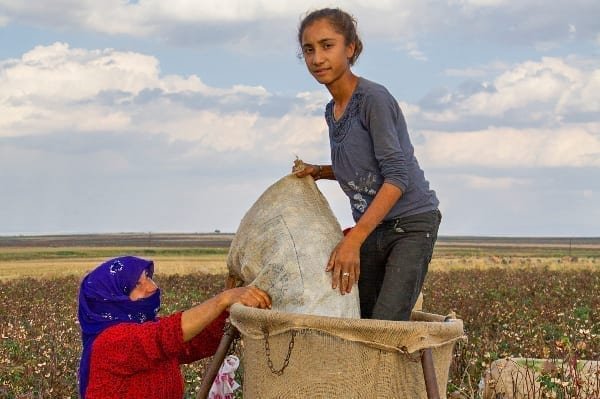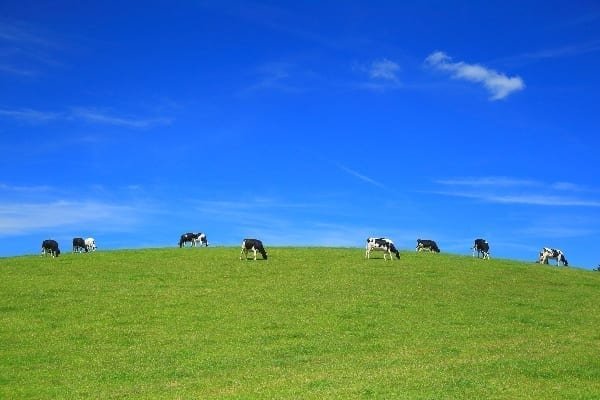READER OFFER
Use the code GREENPOD10 to receive 10% your order at Dip & Doze
For George, creating spaces that we love isn’t about making constant purchases or following trends, but finding beautifully made items that help us reconnect and that are designed to move through life with us.
‘I also wanted to include thoughtful touches that make life easier’, George explains. On our bedding you’ll find details such as handy size and directional labels, a ‘duvet stop pocket’ and plastic-free, 100% coconut shell buttons, to name just a few.’
Everyday luxury
When George created the range he was determined to build it round a subtle, everyday kind of luxury, so the finest quality products wouldn’t be kept hidden away for special occasions.
‘The magical calculus of cost per wear comes up a lot in fashion’, George tells us, ‘but rarely in the home sector. Over a lifetime you’ll probably spend around 28 years in your bed, which makes bedding one of the cheapest cost-per-use items in your home.’
The fact we spend around a third of our lives in bed also means it’s important to think about what our chosen bed linen is doing to our health.
Chemicals in cotton
Conventional cotton uses more chemical pesticides and fertilisers than any other crop in the world, and has therefore been branded ‘the world’s dirtiest crop’ by the Soil Association.
The chemicals used in traditional cotton farming get trapped in the cotton that we sleep in and are absorbed into our skin – the largest organ we have.
‘I don’t want to freak people out’, George tells us, ‘but I want to help spread the word that the reality of this is not only devastating health consequences for farmers, but also surrounding schools and communities. Ecosystems also suffer detrimental effects when these chemicals seep into waterways.’
Choosing organic bed and bath linen also means that our skin doesn’t absorb anything that can be harmful to us while we sleep or dry off.
Although it still uses water and land, organic cotton is usually rain fed—Dip & Doze’s is grown using 80% rainwater—and it builds soil fertility.
Aligning your values
When choosing organic bedding, it’s important to look for GOTS (Global Organic Textiles Standard) certification. It’s the gold standard in organic accreditation and confirms no harmful chemicals, pesticides or fertilisers have been used at the farming or manufacturing stage.
‘It’s so easy to buy a cheap sheet, but think of the true cost of that purchase and its longevity’, says George. ‘It’s about stopping to think about the people behind the things you love, and choosing brands whose values align with your own. Ask whether the company rejects the throwaway culture and respects nature’s wonderful resources, and what type of materials it uses. Avoiding synthetic fabrics prevents the shedding of microplastics in the wash.’
Organic, high-quality materials may be more expensive, but they will more than pay for themselves by lasting years longer than cheaper alternatives, as well as feeling so much better on your body and respecting the communities and environment where the cotton is grown.
Sir Jacob Behrens – the founder of George’s family business – did a lot for society; when he died in 1889 it was written ‘he seemed only to exist to be of service to his fellow men’. With his determination not to greenwash customers and to be transparent in business, six generations later George operates with the same ethics and in line with the family motto: esse quam videri – to be rather than to seem.
 Play Video about This Rock Might Just Save The World
Play Video about This Rock Might Just Save The World Play Video about Play 2 hours of rock
Play Video about Play 2 hours of rock Play Video about Play 2 hours of brook
Play Video about Play 2 hours of brook Play Video about Play 2 hours of sheep
Play Video about Play 2 hours of sheep















































